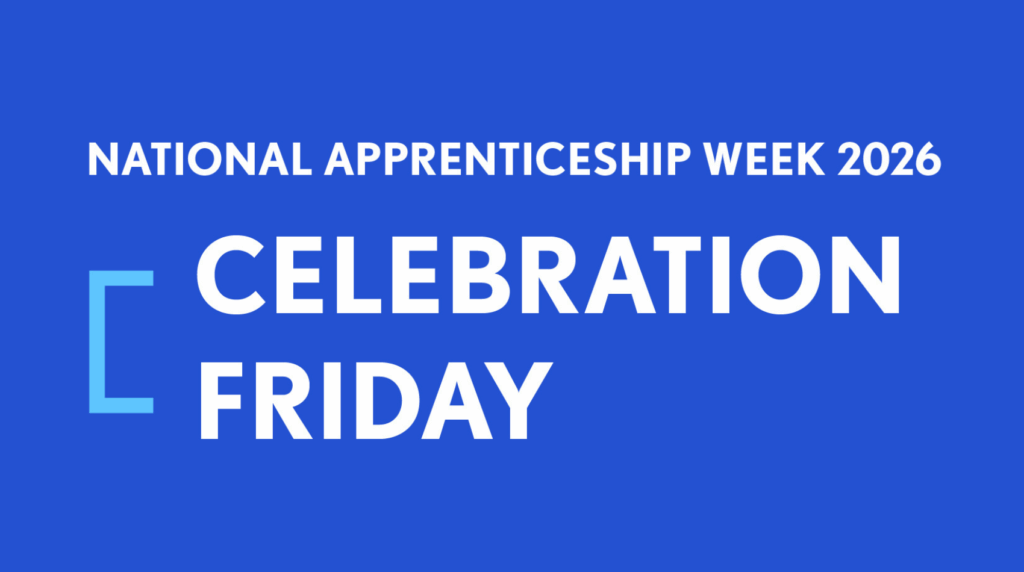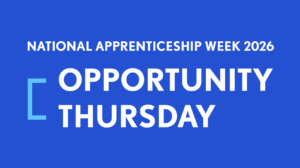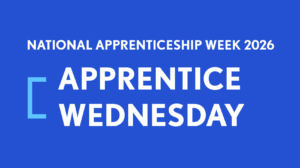Abi Hickey,
Content Creator
14th August 2024
Which path is best for you: an apprenticeship or traditional education?
So, you’re finishing sixth form or secondary school and exploring your next steps?
You have a world of exciting options ahead of you! Whether you choose to continue with traditional education or dive into an apprenticeship, you’ll be sure to be on a journey full of opportunities and possibilities.
Apprenticeships offer you an alternative to classroom learning while also giving you the chance to gain hands-on and relevant experience in your chosen sector. There are various apprenticeships to suit your personal; interests and goals, and they don’t define your career, so no need to worry about that. There aren’t many 16-20-year-olds who know exactly what they want to do ( in all honesty no one really knows). But for now, knowing that classroom learning isn’t for you is a great start.
Both traditional education and apprenticeships have their benefits
Apprenticeship training prioritises hands-on training, mentorship, and on-the-job learning. It allows you to work alongside professionals in the sector you have chosen and learn from them.
Earn while you learn
One of the biggest advantages of an apprenticeship is that you get paid while you learn and you can put your skills, knowledge, and experience into practice straight away.
Gaining experience
Apprenticeships provide practical, on-the-job training. You apply what you learn in the classroom directly to your work, gaining valuable experience and giving you a significant advantage in the job market. Many apprentices are offered permanent positions with their employers after they complete their programme. Not only this but during your time in your job you will be able to build a network of industry contacts, which can be incredibly valuable to your career.
Accessible to everyone
If you struggle with the traditional structure of academic learning, an apprenticeship is an opportunity to learn and push yourself into your chosen field. It’s important to note that if you didn’t pass your GCSE Maths or English you will be given the opportunity to do the equivalent qualifications (functional skills) while doing your apprenticeship. These are nationally recognised qualifications and will ensure you aren’t held back because you don’t have the GCSEs.
Better work/life balance
Apprentices are assigned time off the job to complete their apprenticeship work. This means that you won’t have to do any studying in your spare time, unlike college/sixth form.
But there are some drawbacks to apprenticeships
Limited availability
Apprenticeships are not available in all industries, so the choice of subjects might be more limited compared to traditional education routes such as University.
Less traditional student life
If the social aspects of college and university life such as living in halls are something that you are looking forward to. Apprenticeships might not provide this same experience for you.
Balancing work and study
Apprenticeships do require some studying, be that in the form of attending training sessions, webinars & making use of the resources given to you. This studying & training will be carried out during your day to day working life & therefore it will be your responsibility to manage your time effectively.
Traditional education: college, sixth form, and university
A broad range of courses
These places of education offer a wide variety of courses and subjects, allowing you to explore different academic interests. Sixth form and college often focus on A-levels or vocational qualifications like BTECs, while universities provide an extensive array of degree programs across numerous subjects.
Student experience
The student experience can vary across sixth form, college, and university. At sixth form and college, you have the opportunity to engage in extracurricular activities, join clubs, and participate in sports teams. University life offers a unique social experience, including living away from home, joining societies, and enjoying greater independence.
Flexible learning environment
Sixth forms, colleges, and universities often provide a more flexible learning environment compared to structured apprenticeship programs. You may have more free time and opportunities to engage in extracurricular activities. Universities, in particular, offer a wide range of resources, such as libraries, labs, and support services, to enhance your learning experience.
Drawbacks to traditional education
Cost of education
University education can be expensive, with high tuition fees and additional costs for accommodation, textbooks, and living expenses. This can lead to significant student debt in years to repay.
Lack of practical experience
Traditional routes focus heavily on theoretical knowledge rather than practical experience. This can leave students feeling unprepared for real-world job challenges. As well as
limited industry insight while you gain academic knowledge, you may miss out on valuable industry insights that come from hands-on experience in the workplace.
Pressure and stress
Exam pressure students often face high levels of pressure to perform well in exams and assessments, which can lead to stress and anxiety. As well as having to deal with
workload management such as balancing coursework, extracurricular activities, and social life can be overwhelming, especially in a traditional academic environment where assignments and deadlines are often tight.
So which path is right for you?
Choosing between an apprenticeship, or traditional university education depends on your career goals, learning style, and personal preferences. Here are some questions to consider:
What are your career goals?
How do you learn best?
What kind of experience are you looking for?
Conclusion
Both apprenticeships and traditional university education have their unique benefits and challenges. It’s important to weigh these factors and consider what will best help you achieve your personal and professional goals.
Whether you choose to earn while you learn through an apprenticeship, gaining valuable hands-on experience and getting your education paid for, or immerse yourself in the academic and social life of a university, the best path is the one that aligns with your aspirations and learning style.
Why not have a look at the courses we offer and see if there is anything that interests you?
————–
For further insights and guidance on maximising your apprenticeship funding, please don’t hesitate to reach out to us at:
Tel: 023 8017 0380
Email: hello@kiwieducation.co.uk
Kiwi & Yuzu Ltd is committed to empowering businesses and individuals through quality education, training, and skills development.
Employers
Read More
Individuals
Available Courses
International
Our Partnerships


